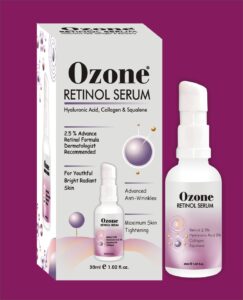Free Shipping Upto Rs.2000.
🎁 FREE SHIPPING ACROSS PAKISTAN 🚚.
Menu

Retinol (a form of Vitamin A) is widely studied for its anti-aging, acne-fighting, and skin-renewing properties. Research from dermatology journals and clinical studies supports its effectiveness. Here’s a summary of key findings:
1. Anti-Aging & Collagen Production
Retinol stimulates collagen synthesis, reducing fine lines and wrinkles.
A 2015 study in JAMA Dermatology found that topical retinol significantly improves skin elasticity and firmness.
2. Acne Treatment & Pore Refinement
Retinol helps unclog pores and regulate sebum production.
A 2020 review in the Journal of Clinical and Aesthetic Dermatology confirmed its effectiveness in treating mild to moderate acne.
3. Skin Tone & Hyperpigmentation
It accelerates cell turnover, reducing dark spots and evening skin tone.
Studies, including a 2016 Dermatologic Therapy review, show retinol reduces hyperpigmentation and melasma.
4. Wound Healing & Barrier Repair
Low-concentration retinol can improve skin barrier function and hydration, as per research in the International Journal of Molecular Sciences (2021).
5. Long-Term Benefits & Safety
Regular use improves overall skin texture, brightness, and resilience.
Some studies highlight initial irritation (redness, peeling), which decreases as skin adapts.

Copyright © 2024 ozone. All rights reserved
House 8-D,bilal Market, Lane 7,sadiq town, adiala Road, Rawalpindi.